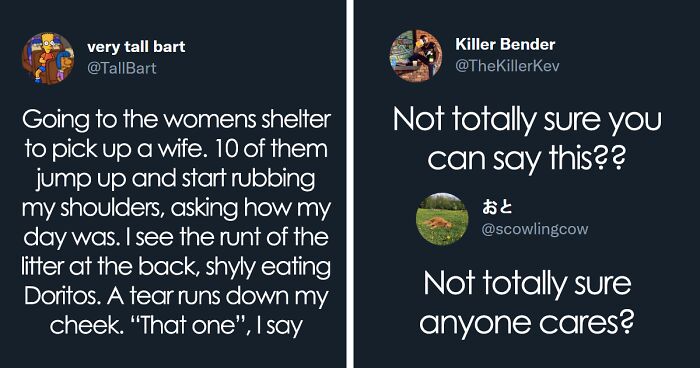
Woman Calls Out Toxic Men Who Pass Off Their Misogyny As ‘Edgy’ Jokes, Shows Horrific Screenshots
The jokes we share with others can tell a lot more about ourselves and how we view the world than we might initially think. In a series of viral tweets, well-known Twitter user Emrazz, aka the Feminist Next Door, explained how some men present and spread their misogyny in the form of ‘edgy’ jokes.
She then went into detail about why these men find this kind of sexist humor funny. “I want to talk about why men think this is funny,” she told her followers. You’ll find her full thread below, Pandas. Have a read and let us know what you think about the Feminist Next Door’s insights.
Her tweets made quite a splash on Twitter, getting over 11.8k likes within a couple of days. It’s not the first time that Emrazz has called out systemic sexism online. You’ll find Bored Panda’s recent article about the sensitive but important topics she tackles here.
Bored Panda reached out to British comedy writer Ariane Sherine to get her opinion about misogyny in humor. “The jokes we share reveal a lot about who we are as people. When the target of the joke is an oppressed section of the population, it’s called ‘punching down’ and usually says a lot about how that person feels about the target,” she told me during an interview via email.
“I think men who hate women often vent their anger through the form of dubious humor at women’s expense. Sadly, cruel humor can still be funny and people can still be amused by it,” she said. Scroll down to read the rest of Ariane’s thoughts.
More info: Twitter | Instagram
Twitter user Emrazz, known as the Feminist Next Door, created a viral thread about how some men make ‘edgy’ jokes which they use to spread their misogyny
Image credits: emrazz
Image credits: emrazz
Image credits: twitter.com
Image credits: emrazz
Image credits: emrazz
Image credits: emrazz
Image credits: emrazz
Image credits: twitter.com
Image credits: emrazz
Image credits: emrazz
Image credits: emrazz
Image credits: emrazz
Image credits: emrazz
Image credits: emrazz
Image credits: emrazz
Image credits: emrazz
Image credits: emrazz
Image credits: emrazz
Image credits: emrazz
Image credits: emrazz
Image credits: emrazz
Image credits: emrazz
Image credits: emrazz
Image credits: emrazz
Image credits: emrazz
Bored Panda asked comedy writer Ariane about the limits of humor and when we should consider censorship. According to her, we should draw the line where humor transcends into real threats. However, otherwise, we shouldn’t censor humor too much.
“I don’t think we should censor jokes unless they incite violence against a minority. I’m very anti-censorship. But people have every right to push back when they hear a misogynistic joke and to comment, e.g. ‘Apologies, I thought this was 2021 but it’s clearly 1970!’ etc.”
I was also curious about how someone should act if they accidentally insulted someone with their jokes. Whether online or offline. “I think apologies still work online if they’re clearly heartfelt. Something like, ‘I’m really sorry, I realized that joke was a mistake so I’ve deleted it and won’t be posting anything like that again’ is honest and commendable and I think people will respond in kind.”
The Feminist Next Door, from New York, has been tweeting about gender-related issues since the spring of 2009. In that time, she’s gotten 228k followers on Twitter, as well as 10.4k fans on Instagram where she reshares her most important tweets.
Emrazz explains that her biggest enemy is misogyny, so her mission is to put an end to it in every possible shape that it takes. “I don’t hate men but I do hate misogyny. Stop doing that,” she writes in her Instagram bio.
Scientist Hilda Bastian writes in an essay about how humor can be a force for good or for evil, depending on how you use it.
“Humor can be used to create a quick bridge between people. But it can also reinforce outgroups’ otherness and relatively marginal social status,” she explains.
Researchers Thomas Ford and Mark Ferguson found that jokes don’t create hostility toward the group that’s being made fun of, however, humor does reinforce existing prejudice. In short, this means that if you joke about women with no repercussions, anyone with misogynistic points of view can take it as a sign that their beliefs are socially accepted.
“The joke tellers don’t themselves have to be actively misogynist to end up encouraging others to be,” Hilda writes.
“Sexist humor’s impact may also reduce people’s willingness to take action against discrimination. Men who were already high in hostile sexism were less likely to express support for actions that would improve gender equality after hearing sexist rather than neutral jokes. Even if that only meant they were more willing ‘to show their hand,’ it’s not reassuring,” she said, referring to another study done by Ford.
Here’s what some Twitter users had to say when they read the Feminist Next Door’s viral thread
Image credits: cosmyra64
Image credits: skyblueeyes65
Image credits: juliehampton20
Image credits: LifesABeach6786
Image credits: Mckenzi79691567
Image credits: peacockblu
Image credits: feminemi1y
Image credits: SeeMack_ie
Image credits: jmwaib
Image credits: raddatz_mw
110Kviews
Share on Facebook"This but their all 6-11 years old" What. The. Fu*k. I'm sorry for cussing but what the hell!? Absolutely disgusting.
Yeah that was absolutely horrifying. I think that one post underscores an important point: people like this enjoy exploiting and abusing others. That's the biggest problem with them, not their gender. Here, today, it's women with trauma, but tomorrow it will be something or someone else. Maybe an actual pound puppy that they'll take home and beat to death for fun. It's not because they are men. It's because they are vile people who don't care about anything other than themselves.
Load More Replies...I used to be on 9Gag but there were so many extremely misogynistic "jokes" I just couldn't watch it anymore. Same happened with Quora. When I objected they just verbally attacked me (men, of course) with more "arguments" how women are just "greedy materialistic and ready to sell themselves for expensive bag". That is the outlook of men who were probably never in relationship in their life so they have to invent the reason which is certainly not their horrible personalities but just plain "women are crap". These men, who wrote these awful "jokes", see women as some inhuman creatures who they fear and loathe at the same time, and these men should never be in relationships with women. Ever.
Same for me with 9gag. It used to be funny but now it's like 80% either misogynistic or racist "jokes". Most of the time the memes are bad enough already but I then get to the comment section and see how many men agree with the meme posters. It's so confusing how much they seem to hate women but wonder why women don't want to be with them at the same time. Whining about how they get friend-zoned because they're allegedly too nice. It scares me what they say when they think they're only among other men. And I can't or rather don't want to imagine that some of these men might be friends, co-workers, or neighbors of mine. That scares the s**t out of me.
Load More Replies...Here’s the Twitter thread, it’s awful, feel free to report him! https://twitter.com/TallBart/status/1446615630447140865?s=20
Done, also sent to a local feminist activism group so they can nuke him as well.
Load More Replies..."This but their all 6-11 years old" What. The. Fu*k. I'm sorry for cussing but what the hell!? Absolutely disgusting.
Yeah that was absolutely horrifying. I think that one post underscores an important point: people like this enjoy exploiting and abusing others. That's the biggest problem with them, not their gender. Here, today, it's women with trauma, but tomorrow it will be something or someone else. Maybe an actual pound puppy that they'll take home and beat to death for fun. It's not because they are men. It's because they are vile people who don't care about anything other than themselves.
Load More Replies...I used to be on 9Gag but there were so many extremely misogynistic "jokes" I just couldn't watch it anymore. Same happened with Quora. When I objected they just verbally attacked me (men, of course) with more "arguments" how women are just "greedy materialistic and ready to sell themselves for expensive bag". That is the outlook of men who were probably never in relationship in their life so they have to invent the reason which is certainly not their horrible personalities but just plain "women are crap". These men, who wrote these awful "jokes", see women as some inhuman creatures who they fear and loathe at the same time, and these men should never be in relationships with women. Ever.
Same for me with 9gag. It used to be funny but now it's like 80% either misogynistic or racist "jokes". Most of the time the memes are bad enough already but I then get to the comment section and see how many men agree with the meme posters. It's so confusing how much they seem to hate women but wonder why women don't want to be with them at the same time. Whining about how they get friend-zoned because they're allegedly too nice. It scares me what they say when they think they're only among other men. And I can't or rather don't want to imagine that some of these men might be friends, co-workers, or neighbors of mine. That scares the s**t out of me.
Load More Replies...Here’s the Twitter thread, it’s awful, feel free to report him! https://twitter.com/TallBart/status/1446615630447140865?s=20
Done, also sent to a local feminist activism group so they can nuke him as well.
Load More Replies...
 Dark Mode
Dark Mode 

 No fees, cancel anytime
No fees, cancel anytime 








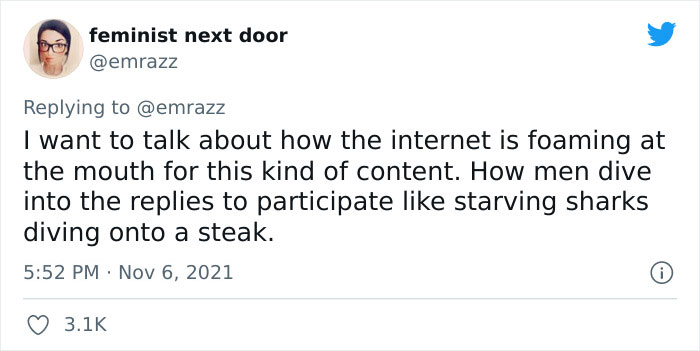

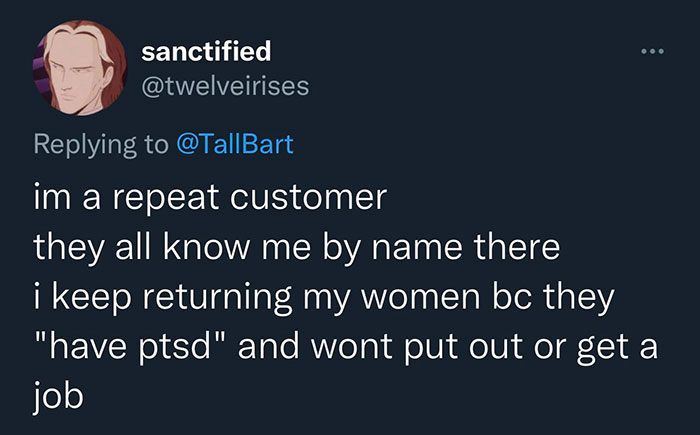


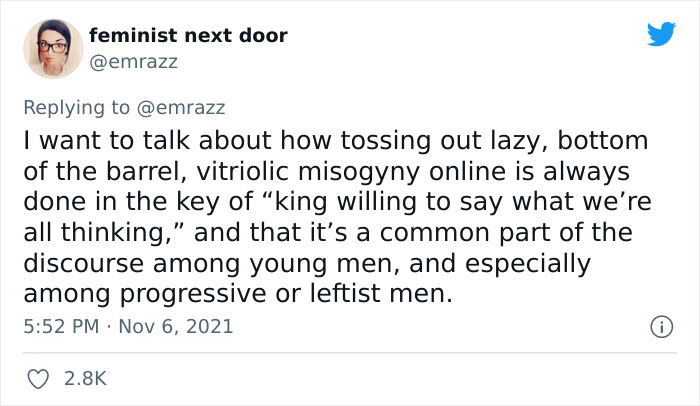
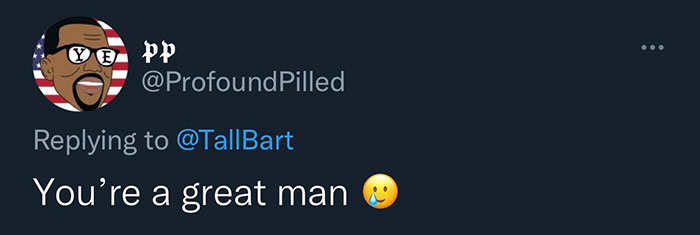



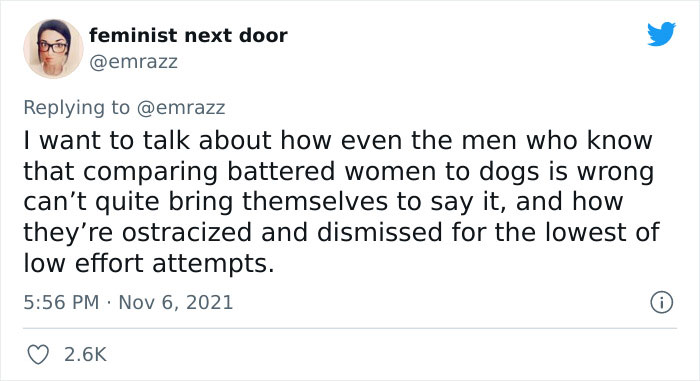
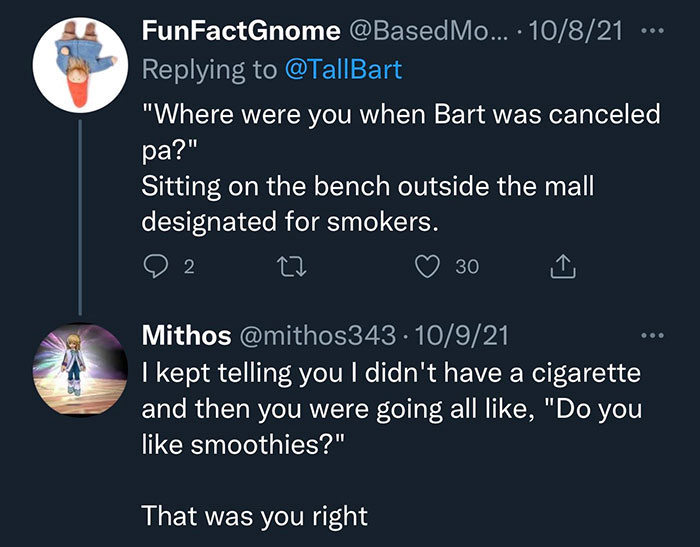
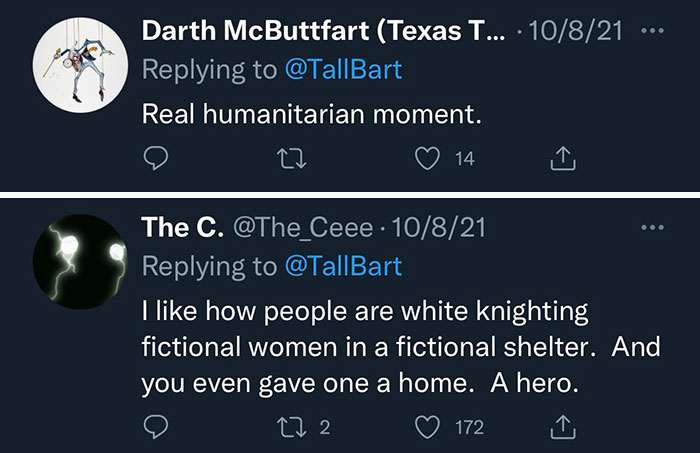
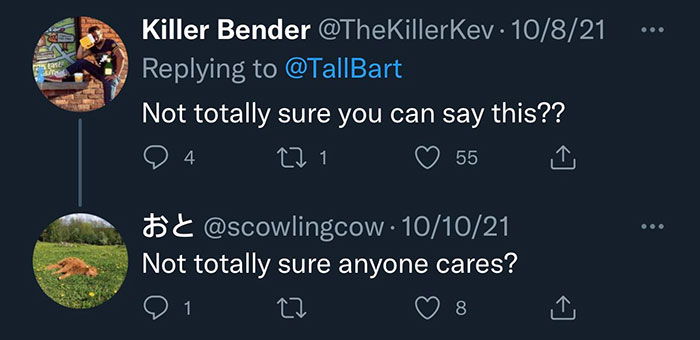
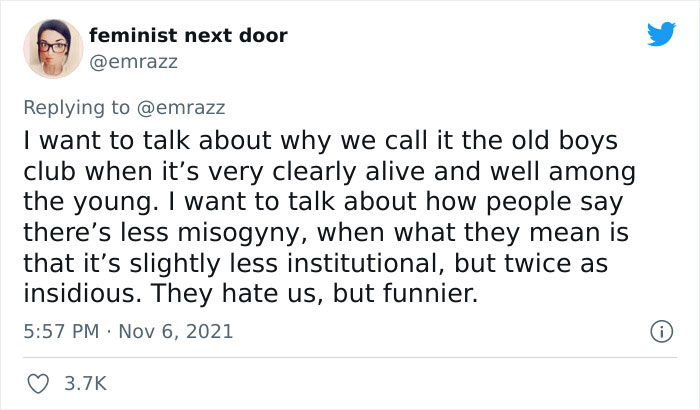



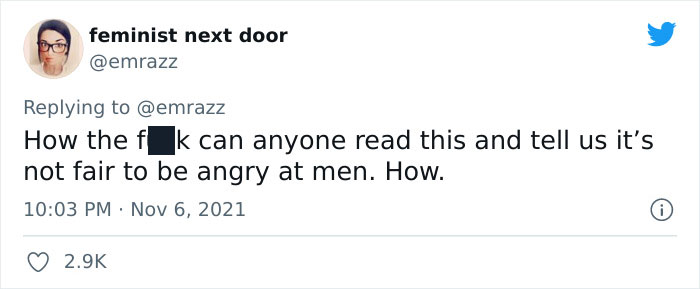

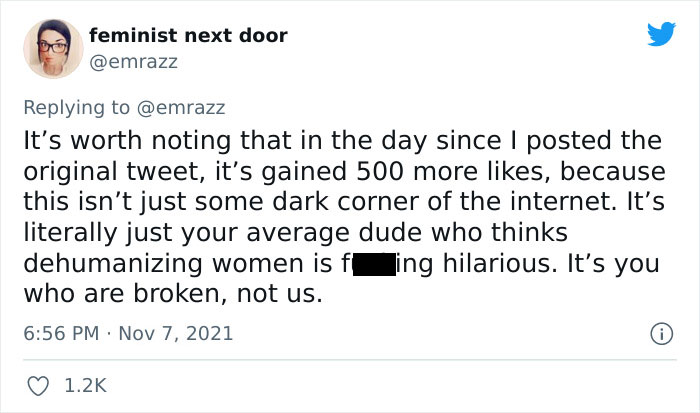
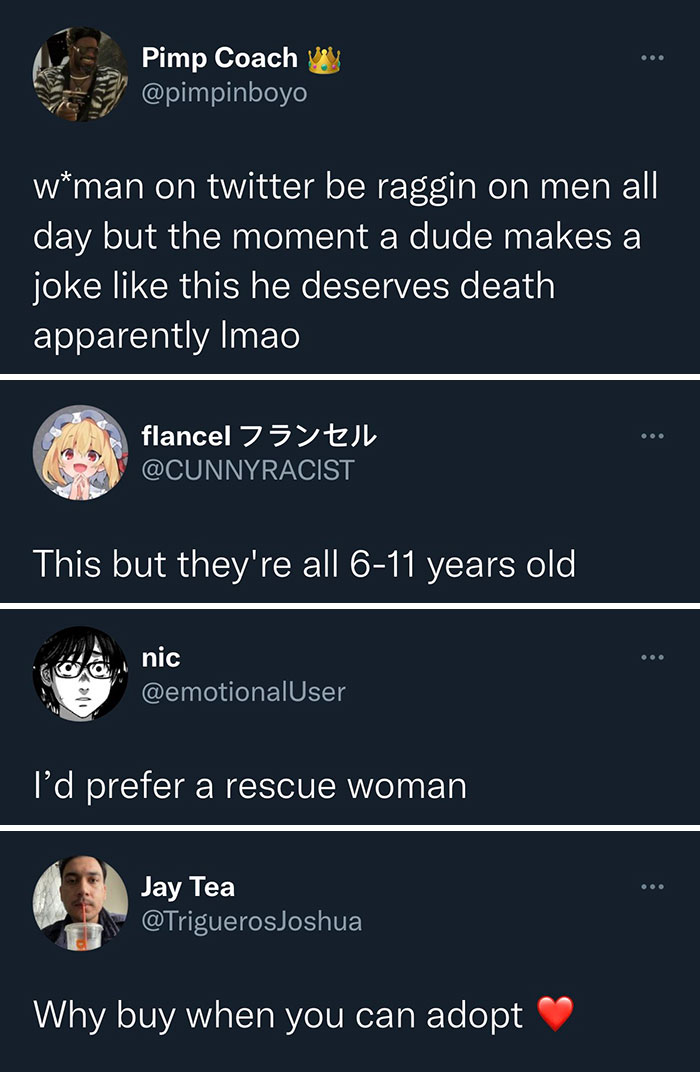
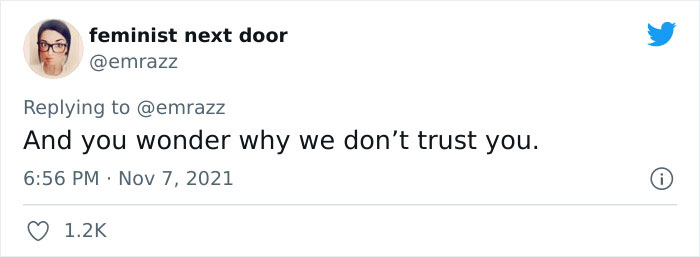
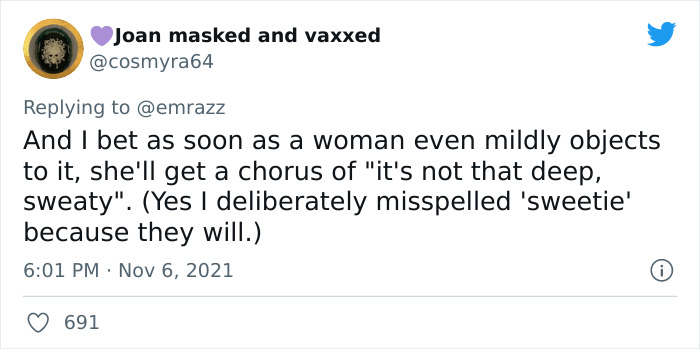
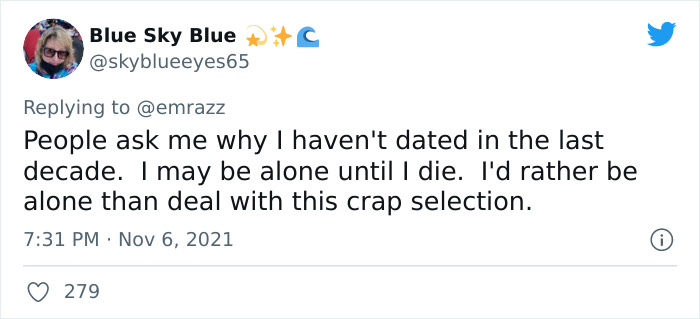
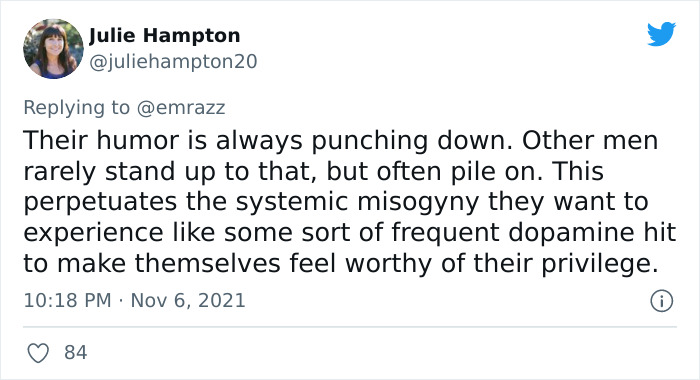

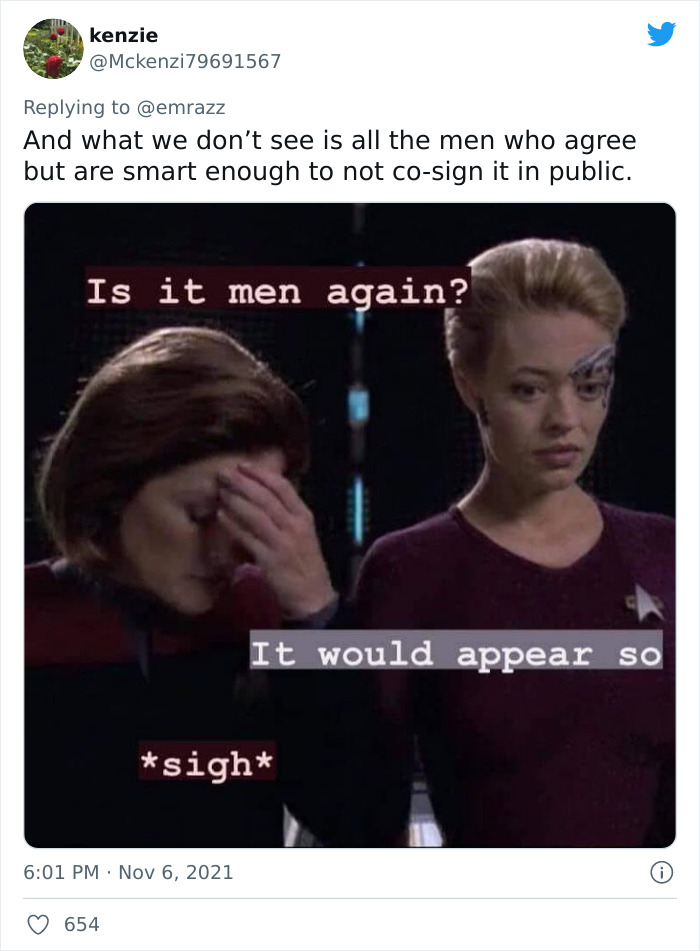
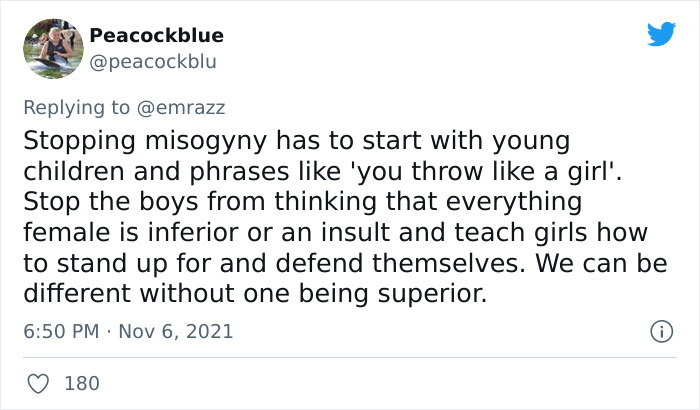
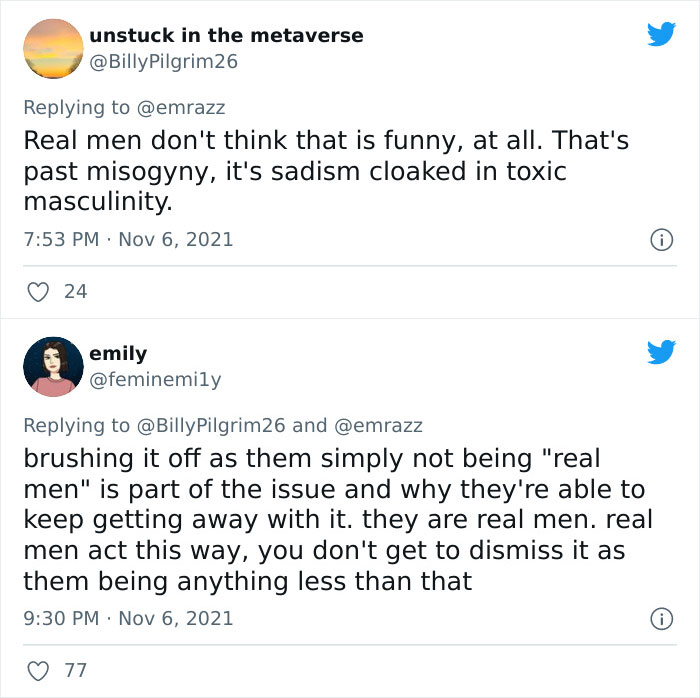
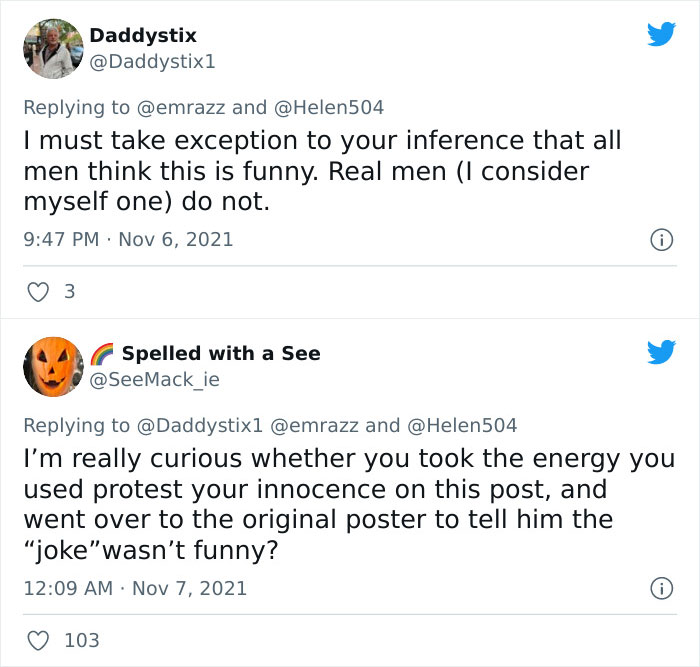
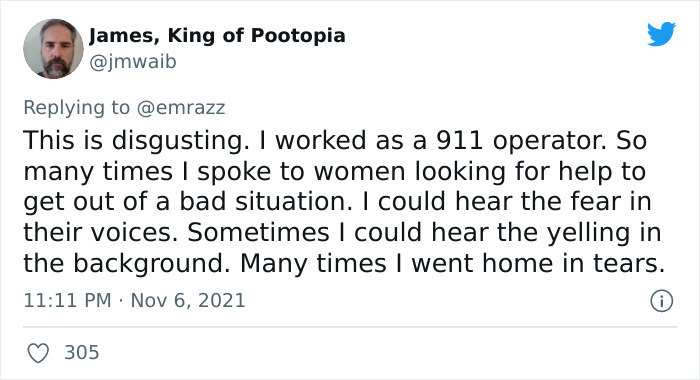
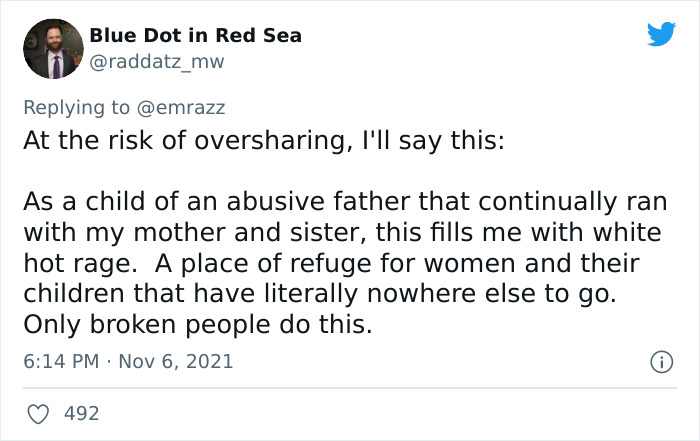




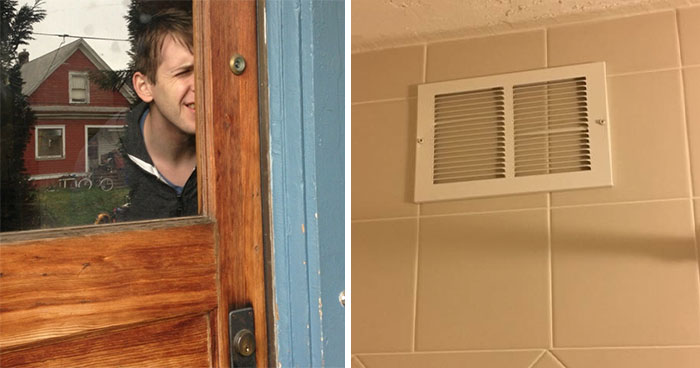





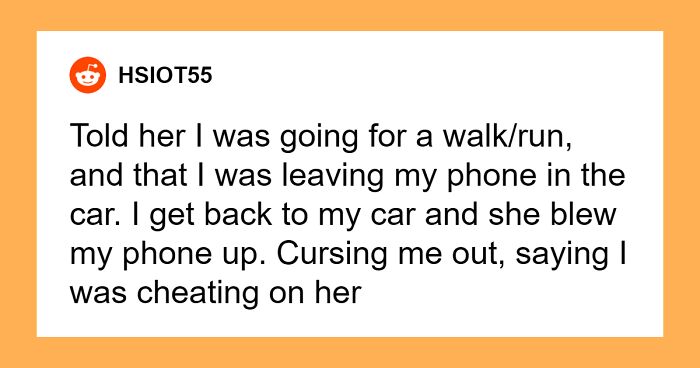



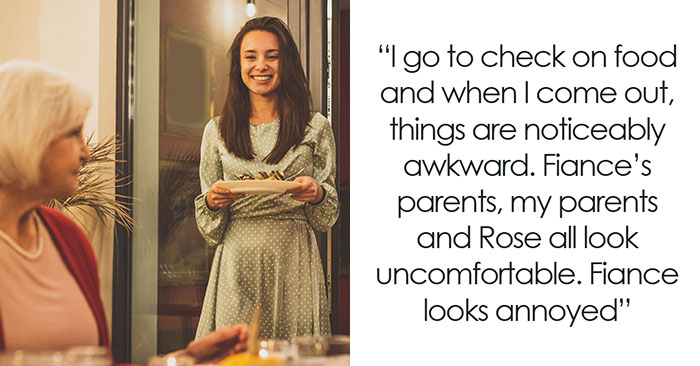




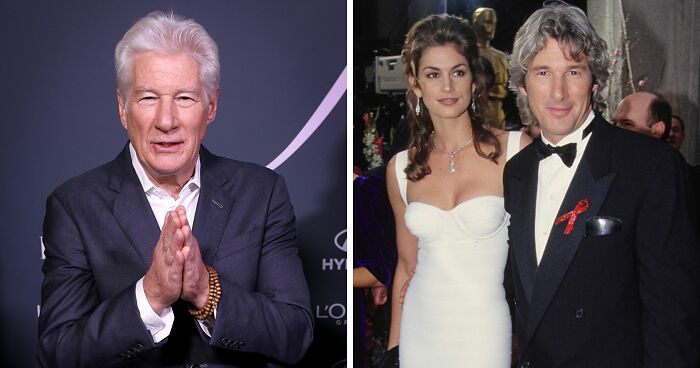











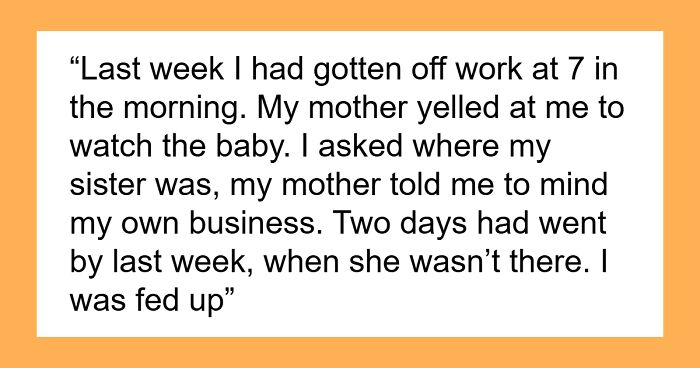

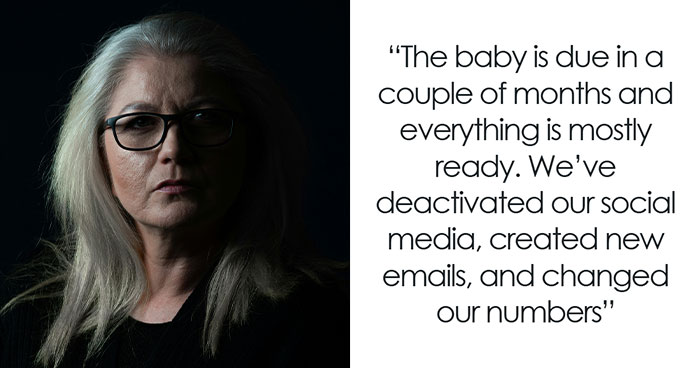








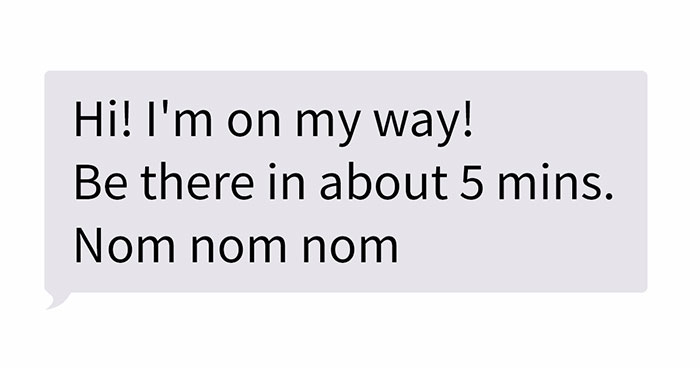
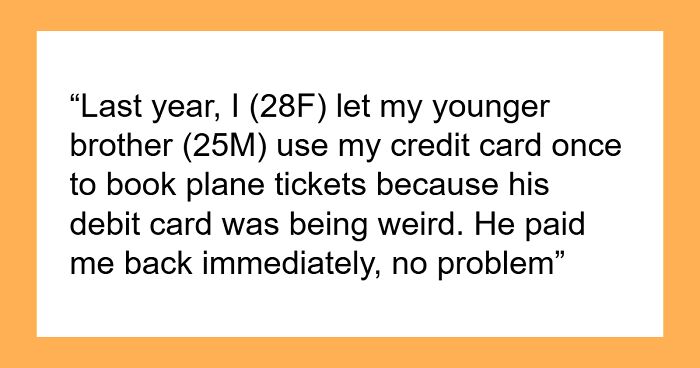
80
106